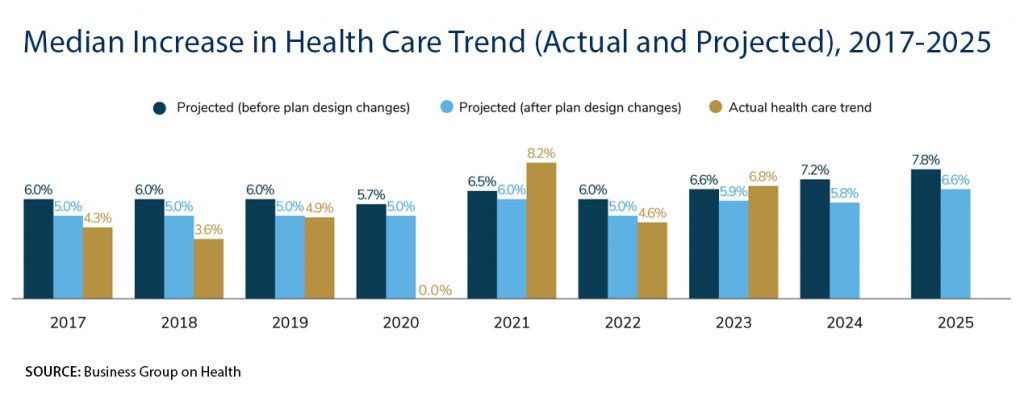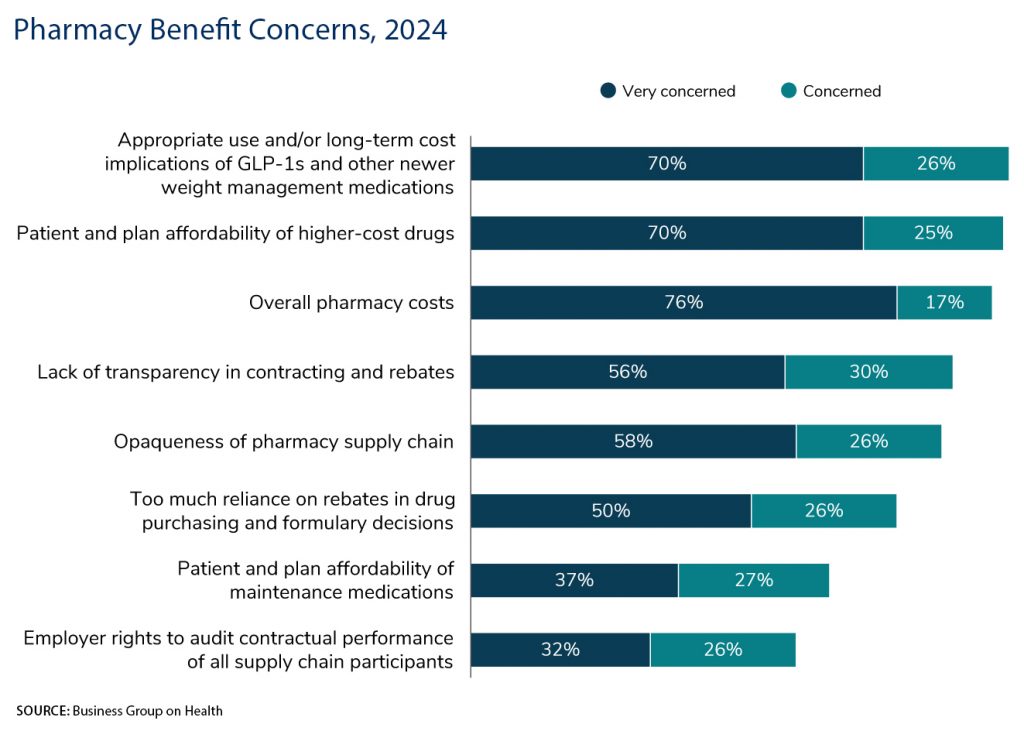Employers say they expect their health care costs to rise 7.8% next year — the highest estimate in more than 15 years — according to the latest Business Group on Health member survey. Even factoring in cost-reducing plan design changes, respondents project costs to increase 50% from 2017 to 2025 (see chart below).

The reasons members cite for the health cost forecast include:
Pharmacy costs. The median percentage of health care dollars employers spent on prescription drugs jumped from 21% to 27% in just two years (2021-2023), so most of the projected increase is due to pharmacy costs. GLP-1s are causing the greatest anxiety, with members saying they’re “very concerned” (70%) or “concerned” (26%) about the impact of the medications, used to treat diabetes and obesity.
Other top concerns for respondents: Affordability of higher-cost (specialty) drugs, overall pharmacy costs, and lack of transparency in contracting and rebates (see chart).

Cancer and cardiovascular. Four out of five respondents rank cancer as the top condition that drives cost, with musculoskeletal conditions coming in at #2 (74%). And as the #3 cost driver, cardiovascular conditions have risen from 30% in 2022 to 40% in 2024.
Mental health. Seventy-nine percent of employers say that mental health access is a top priority for 2025. Virtual counseling and coverage of out-of-network treatment were among the strategies cited to address access and cost.
Lastly, employers manage and reassess vendor partnerships to address costs and improve performance. To that end, MedBen strives to get you as much information about your plan in as many ways as possible. This includes employer reporting and plan reviews, newsletters, and MedBen University seminars and roundtables… all designed to show you how your health care dollars are being spent and offering options to get the most from your benefits.
If you ever have questions or concerns about your plan, we’re available to talk. Call MedBen at 888-627-8683.
You can read the complete Executive Summary of the survey at the Business Group on Health website.
